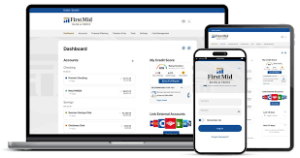Trust Bank’s Trust Lock Feature Overview:

- Allows customers to lock up to five Savings Pots (subaccounts)
- Customers can still deposit money into locked accounts
- Unlocking requires two-factor authentication:
- Tapping physical Trust debit/credit card on NFC-enabled smartphone
- Entering a six-digit Trust Key

Unique Security Measures:
- 12-hour waiting period after unlocking before withdrawals can be made
- Alternative verification for customers without NFC-enabled phones involves in-person identity verification at Trust Experience Centre
Comparison with Other Banks:
- DBS: Locks specific amounts in current/savings accounts, fixed deposits, or DigiVault
- UOB: Locks money in savings accounts or a separate LockAway Account
- OCBC: Locks specific amounts in current and savings accounts

Unlocking Procedures Differ:
- DBS: Requires a branch visit for identity verification
- OCBC: Requires ATM/branch visit with card and PIN
- UOB: Can unlock via ATM
- Trust Bank: Uses NFC and Trust Key with a 12-hour waiting period.

Context:
- Singapore saw S$1.1 billion in scam losses in 2024
- Trust Bank’s feature has already been activated by over 181,000 customers
- Locked savings amount reached S$15.8 billion by end-October 2024
The feature appears designed to provide an additional layer of security against increasingly sophisticated scam techniques, particularly those involving smartphone control.
- Multi-Layered Authentication
- Two-factor authentication (2FA) for transactions
- Biometric verification (fingerprint, facial recognition)
- Physical card plus digital authentication
- One-time passwords (OTPs) for sensitive transactions

- Money Locking Mechanisms
- Banks like Trust Bank, DBS, UOB, and OCBC now offer features to:
- Lock specific amounts in accounts
- Prevent unauthorized withdrawals
- Require multi-step verification for fund releases
- Introduce cooling-off periods before fund transfers

- Digital Security Measures
- Real-time transaction monitoring
- Artificial intelligence-powered fraud detection systems
- Automated alerts for suspicious activities
- Geolocation tracking of transactions
- Limits on high-risk transactions

- Customer Education Initiatives
- Scam awareness programs
- Public communications about latest fraud techniques
- Workshops on digital banking safety
- Regular updates on emerging scam strategies
- Regulatory Collaboration
- Singapore Police Force partnership with banks
- Coordinated reporting and tracking of scam incidents
- Shared databases of known fraud patterns
- Rapid response protocols for potential scams

- Technology-Driven Interventions
- Machine learning algorithms to detect unusual transaction patterns
- Blockchain-based verification systems
- Advanced encryption technologies
- Secure mobile banking applications with enhanced security features

- Regulatory Frameworks
- Strict licensing requirements for financial institutions
- Mandatory reporting of fraud incidents
- Regular security audits
- Penalties for inadequate fraud prevention measures
These methods reflect Singapore’s comprehensive approach to combating increasingly sophisticated financial fraud techniques.
Maxthon
Maxthon has set out on an ambitious journey aimed at significantly bolstering the security of web applications, fueled by a resolute commitment to safeguarding users and their confidential data. At the heart of this initiative lies a collection of sophisticated encryption protocols, which act as a robust barrier for the information exchanged between individuals and various online services. Every interaction—be it the sharing of passwords or personal information—is protected within these encrypted channels, effectively preventing unauthorised access attempts from intruders.
Maxthon private browser for online privacyThis meticulous emphasis on encryption marks merely the initial phase of Maxthon’s extensive security framework. Acknowledging that cyber threats are constantly evolving, Maxthon adopts a forward-thinking approach to user protection. The browser is engineered to adapt to emerging challenges, incorporating regular updates that promptly address any vulnerabilities that may surface. Users are strongly encouraged to activate automatic updates as part of their cybersecurity regimen, ensuring they can seamlessly take advantage of the latest fixes without any hassle.

In today’s rapidly changing digital environment, Maxthon’s unwavering commitment to ongoing security enhancement signifies not only its responsibility toward users but also its firm dedication to nurturing trust in online engagements. With each new update rolled out, users can navigate the web with peace of mind, assured that their information is continuously safeguarded against ever-emerging threats lurking in cyberspace.
The post Trust Bank’s Anti-Scam Trust Lock Feature appeared first on Maxthon | Privacy Private Browser.